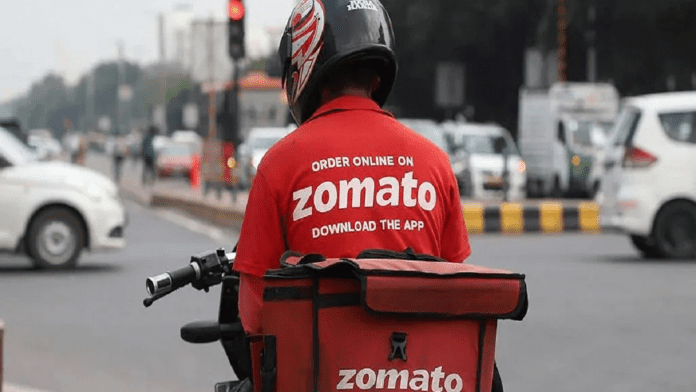Chargeup, A startup building FineTech platform in the electric vehicle (EV) industry, has joined forces with food delivery giant Zomato to offer the delivery partners, a seamless access to financing and leasing options for electric vehicles. The goal of this collaboration is to make the transition to EVs as smooth as possible for the delivery partners.
The company says the fact that last-mile food delivery personnel cover several kilometres a day, the emissions from their scooters and bikes add to the mobility footprint in urban areas significantly. This is where the partnership aims to bring about a transformation.
With Chargeup rapidly expanding its battery-swapping station network to include Tier-I and Tier-II cities, this new partnership is poised to reach even more Zomato delivery partners in the future. The company notes that the switch to EVs, coupled with access to the vast network of battery-swapping stations, will help drivers maximize their uptime and earn more, while also reducing emissions.
Varun Goenka, Co-founder & CEO of Chargeup, said, “As a climate-tech company dedicated to creating a clean mobility ecosystem in India, Chargeup is offering appealing and simple financing and leasing support to Zomato delivery partners who are ready to switch to EVs. Not only will their carbon footprint decrease but the delivery partners will also be able to lock in their costs, and increase their monthly earnings. We aim to make their lives simpler and ensure greater productivity. Chargeup has made significant efforts to transform the lives of thousands of e-rickshaw drivers in Delhi-NCR, doubling their incomes. As a step forward, our EVs will enable Zomato delivery partners to make more deliveries without worrying about the rise of fuel prices or a drop in their income levels.”
Mohit Sardana, Chief Operating Officer — Food Delivery at Zomato, said, “Through our partnership with Chargeup, our delivery partners will have access to a vast network of battery-swapping stations, ensuring 100% uptime and reducing operational costs for our delivery partners. This not only supports our sustainability goals but also contributes to our ongoing efforts to improve the lives of our delivery partners.”




